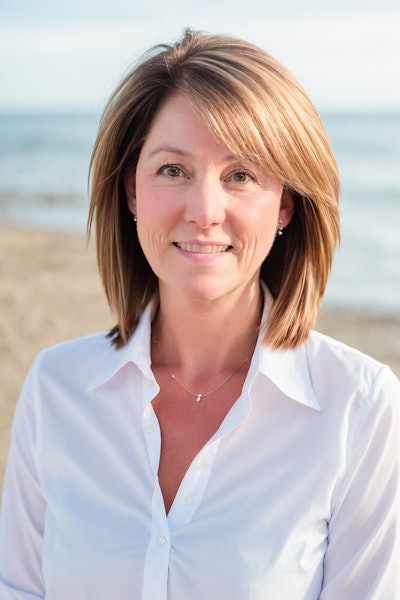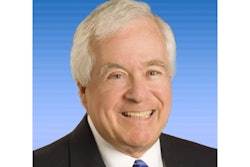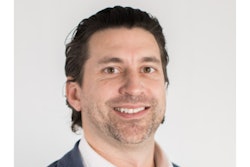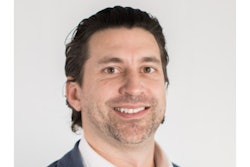In Part 1, we walked through the emotional and financial preparation that goes into selling your practice to a DSO. But what should you expect after you sign on the dotted line? Understanding what life looks like post-sale can help you make a more informed decision and be better prepared for a successful transition.
 Kim McCleskey.
Kim McCleskey.
Selling your dental practice, whether it’s a full sale or a partnership with a DSO, is more than a transaction, it’s a transition. What comes next can be exciting, challenging, or even a little bumpy at times. But with the right mindset and preparation, you can make the most of this new chapter.
The truth behind the first six to 12 months: Embracing change
Let’s be honest: The first several months post-sale will likely come with some degree of disruption. Change is hard. You’ve built your rhythm, systems, and routines. When a DSO comes in, some of that is going to shift, and that’s OK.
Most DSOs do everything they can to minimize the disruption. They know that too much change too fast causes unnecessary stress. They’ve gotten much better over the last decade at pacing the transition: introducing new systems gradually, offering plenty of support, and listening to feedback.
In my experience, the doctors who navigate this period smoothly are the ones who went in with their eyes wide open -- they asked the right questions before signing the deal and they partnered with a broker to vet the DSO’s transition process to find the best fit.
The first few months: Setting expectations
After signing the letter of intent, the due diligence process begins. Weekly “cadence calls” are scheduled to set expectations around the three main areas of focus leading up to closing day: (1) the quality of earnings, where a third-party certified public accounting firm works with your accountant to verify the practice’s financials; (2) legal contracts; and (3) team onboarding and integration.
The transition period typically begins with these cadence calls between the practice and the DSO team. These calls serve as a foundation for communication and help establish a rhythm for the partnership.
During these initial conversations, both parties outline their expectations and create a road map for integration. Expect regular calls, support from regional managers, and open lines of communication.
One thing I always emphasize to doctors is that reputable DSOs understand the value of your existing practice culture. They didn't invest in your practice to completely overhaul what made it successful in the first place. Instead, their goal is to preserve what works while introducing systems that can enhance efficiency and profitability.
Their success depends on your satisfaction and continued engagement. The most successful transitions occur when doctors view the sale not as an endpoint but as the beginning of a new professional chapter.
Staff transitions and cultural adjustments
One of the biggest concerns I hear from doctors is: “What will happen to my team?” Your staff has likely been with you for years, and they’re more than just employees -- they’re like family. They’ve been a big part of your practice’s success, and you want to make sure they’re taken care of.
The good news? DSOs know how critical your team is to a successful transition. They usually start integrating staff one to two weeks before closing, holding individual meetings, explaining new benefits, and answering questions to ease nerves. In almost all cases, staff salaries stay the same (or improve), and benefits almost always get better.
But culture does shift. With new systems, new policies, and more meetings, it can be an adjustment. This is where clear communication becomes essential.
Your staff will look to you for reassurance during this period of change. By maintaining a positive outlook and highlighting the opportunities that come with joining a larger organization, such as career advancement for your team, enhanced benefits, and continuing education, you can help ease their transition.
Clinical autonomy vs. corporate structure
One of the most common myths about DSOs is that they take away your clinical autonomy.
That may have been true in the early days of corporate dentistry, but things have changed. Today’s DSOs are deeply aware that doctors want the freedom to treat patients as they see fit. Most allow you to retain full clinical control, especially if they’re investing in the success of your location.
That said, some DSOs may introduce preferred treatment protocols or efficiency goals. It’s not about micromanaging your care, it’s about maintaining consistency and optimizing operations across the network.
If autonomy is important to you (and for most dentists it is), then you need to work with a broker who can help you vet which DSOs respect that and which ones don’t. The wrong adviser can steer you into a deal that compromises your values and long-term success. Here’s more on why choosing the right broker matters.
Operational changes: What to expect
While clinical autonomy remains largely intact, you’ll notice changes in operational aspects. You’ll likely experience changes in software systems, reporting requirements, and administrative processes. None of these are monumental, but they do take getting used to.
These typically include:
- Software systems. Many DSOs implement standardized practice management software.
- HR policies and benefits. Staff will transition to the DSO's benefits package.
- Procurement. Supplies and equipment purchasing often shift to the DSO's vendors.
- Accounting practices. Financial reporting will align with the DSO's requirements.
The key is that these changes are typically paced out thoughtfully. A good DSO partner won't attempt to transform everything overnight. Instead, they'll prioritize changes based on necessity and impact, giving your team time to adapt.
From owner to team player: A shift in role and perspective
Your post-sale role will vary depending on the deal you pursue. You might become a partner with shared ownership and operational input or step into a leadership role as an employee within a larger organization. Either way, it’s a transition from being the ultimate decision-maker to working in tandem with a broader team.
Perhaps the most significant adjustment is psychological. You’re no longer in charge of everything, but you’re also no longer responsible for everything. Instead of calling the shots on every decision -- such as hiring, pricing, and marketing -- you may now work with a regional manager or clinical director to manage these tasks. For some doctors, that’s a tough adjustment, but for others, it’s a welcome relief.
For most deals, DSOs require that the selling doctor stay for a transition period, usually three to five years. During that time, your compensation typically shifts from ownership profits to a salary or collections-based structure. Some contracts include bonuses, earnouts, or equity rolls that reward you for hitting certain benchmarks.
Depending on the deal structure, especially in joint ventures, you may retain a voice in operations and share in profits. But in a full buyout, the focus shifts to being a great clinician and leader within a larger organization. Either way, your influence doesn’t disappear, it just looks different.
Career growth and life after the sale
Some doctors see their DSO partnership as a runway to retirement. Others use it strategically to reduce chair time, improve work/life balance, take on a leadership role, or even explore a new career path.
As you settle into the new arrangement, you'll discover where you fit within the DSO's ecosystem. I’ve seen former sellers move into clinical director roles, regional oversight positions, or advisory boards. One doctor I worked with transitioned from solo practice owner to clinical director of a multistate DSO, mentoring other providers and shaping patient care strategy on a much larger scale.
Some doctors even use the experience to build their own sub-DSO or to diversify their professional growth through equity rolls and other investment opportunities within the organization.
The growth doesn’t stop with you. DSOs also create new opportunities for your team. A talented office manager might grow into a regional leadership role, overseeing multiple practices and building their own career path, for example.
No matter what your goals are, make sure your contract leaves room for that evolution. And don’t forget: The end of your employment agreement doesn’t have to be the end of your impact.
Bottom line
Transitioning your practice isn’t solely a financial decision, it’s a professional shift that comes with new dynamics, new opportunities, and, yes, some real changes. While DSO life can offer more balance, career growth, and relief from the burdens of ownership, it’s not a one-size-fits-all experience.
That’s why working with a dental-specific broker is so important. A good broker can help you evaluate the right deal structure, protect your autonomy, and make sure the DSO’s transition process aligns with your values and long-term goals.
The right partner doesn’t just help you sell or transition your practice. They help you step confidently into what’s next.
Kim McCleskey is a practice transition consultant with Professional Transition Strategies. She has worked in dentistry for more than 30 years and is a certified professional business coach. She can be reached at [email protected].
The comments and observations expressed herein do not necessarily reflect the opinions of DrBicuspid.com, nor should they be construed as an endorsement or admonishment of any particular idea, vendor, or organization.



















